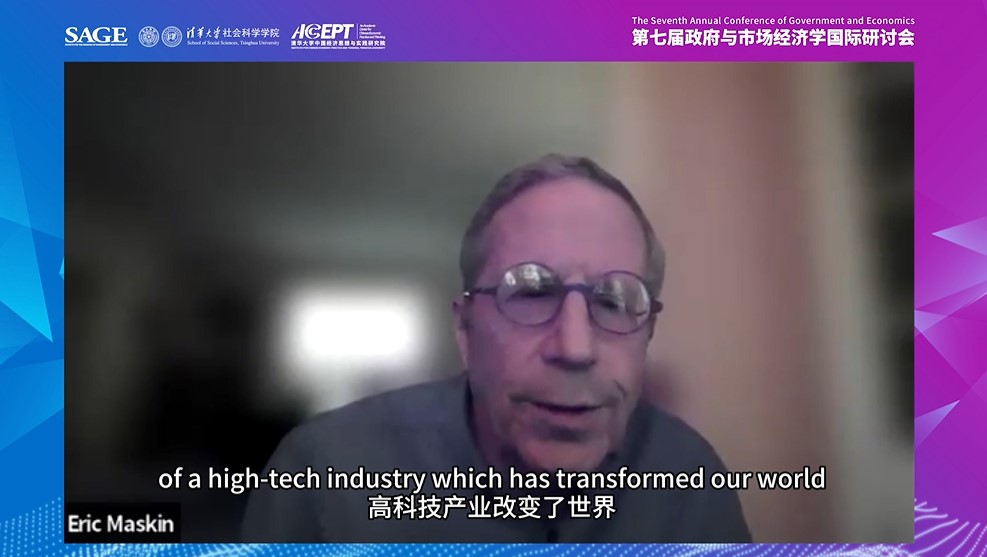
The following is a summary of Eric S. Maskin's keynote address to attendees at the Seventh Annual Conference of Government and Economics held at Tsinghua University, Beijing, on June 7, 2025. Dr. Maskin is a 2007 Nobel Laureate in Economics, the Adams University Professor at Harvard University, and Co-President of SAGE.
On June 10, 2025, the Seventh Annual Conference of Government and Economics, co-hosted by the Society for the Analysis of Government and Economics (SAGE) along with Tsinghua University's School of Social Sciences and the Academic Center for Chinese Economic Practice and Thinking (ACCEPT), was broadcasted online. The Co-President of SAGE, Eric S. Maskin, who is a 2007 Nobel Laureate in Economic Sciences and Adams University Professor at Harvard University, delivered a keynote address to attendees at the conference in a video presentation.
Maskin first pointed out the large number of changes to the economic policies of the United States since the new administration took office at the beginning of the year: imposing a high level of import tariffs internationally and implementing government reforms domestically, even despite its administrative goals and implemented measures having often proven self-contradictory. The imposition of tariffs has led to a sharp decline in the trade volume of goods, which has failed to achieve the goal of increasing fiscal revenues, and has ignored existing mechanisms for multilateral negotiations when it comes to handling foreign economic and trade relations. In place of that, a unilateral approach to negotiations has been adopted that is characterized by its lower efficiency and narrower scope, creating uncertainty and raising concerns among trading partners about the sustainability of current policies. The US federal government is readjusting its institutional setup and cutting spending in certain specially designated areas, most notably in terms of freezing and restricting some of the research funding provided to American universities. This reduction in public funding has failed to take into consideration the fact that basic research is a fundamental driving force for the country's continued technological progress and economic growth, with its very nature as a public good meaning that it can provide a means to fill gaps in the funding outlays made by the private sector.
The fundamental reason for the emergence of contradictions between the administration's objectives and its enacted measures is that decision makers are running the government like a private enterprise, only focusing on profits and losses, without fully understanding the public nature of government expenditures, nor properly understanding the role of the government within the market economy, while ignoring the importance of the government to the country's overall economy and the provision of essential services. In addition, Maskin further mentioned that in order for the central bank to better moderate ongoing fluctuations in economic performance, the institution should maintain its independence so as to ensure that monetary policy is formulated from a long-term perspective, while avoiding the intrusion of short-term political motives or other considerations. Finally, he referred to differences in the composition of tax revenue sources between local governments in China and the US, with local governments in China having comparatively more room for making policy adjustments aimed at providing incentives for enterprises, which is more conducive for promoting enterprise development and local economic growth.